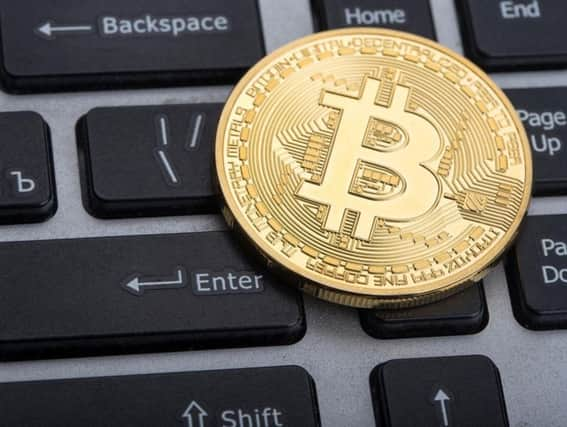What is Bitcoin, REALLY? And is it a scam?


Today’s fads are tomorrow’s staples - but only sometimes. For every pot of Ski there is an eight-track stereo cartridge, mullet hairstyle or hula hoop languishing in the footnotes column of history.
Where exactly Bitcoin will come to rest on this sliding scale of aberration has yet to be seen, but my money is on proper money being around for some time yet.
Advertisement
Hide AdAdvertisement
Hide AdEveryone has read about Bitcoin but few know what it is, and the standard answer that it’s a “digital cryptocurrency” leaves one none the wiser. Is it a currency or not?
The best answer is that Bitcoin is indeed a currency, but only if you consider the barter system to also be one. Anything can be currency if people are prepared to accept it in payment.
Bitcoin was conceived by well-intentioned computer geeks as an international means of payment that would be administered by other computer users, not by banks. It would therefore be fairer and more democratic; that was the theory. The Victorians invented building societies on the same principle.
But that kind of altruism sits uncomfortably with talk of Bitcoin millionaires and of the astronomical rise in its value against proper currencies. So what’s going on?
Advertisement
Hide AdAdvertisement
Hide AdWell, some things never change and one of those is that money talks - even if it’s not real money. The prospect of getting very rich, very quickly by trading in cryptocurrencies has set off a Klondike-style rush that has seen Bitcoin hijacked from its original purpose and diverted into the hands of profiteers and, in some cases, criminals.
This, then, is the trading floor on which Bitcoin is now sold: an unregulated free-for-all in which the price is governed by supply and demand and underpinned not by a physical commodity like Klondike gold, but by a mathematical algorithm. If you buy Bitcoin, you do so on a website and store the “proof” on your phone, which you can in theory show to a retailer to let him know that you’re good for the money. But there are no banknotes or coins for the retailer to deposit with the rest of his takings; only a balance on a website.
When the system was set up, a mechanism was included which treated administrators like door-to-door salespeople, paying them an occasional commission for their trouble. But today’s administrators are not individuals but huge and secretive companies operating warehouses full of computers which rake in the commission disproportionately and artificially force up the “value” of the currency as a whole. At the current rate, one Bitcoin is worth more than £8,000.
And if computers and not banks are clearing the transactions, with no propriety or traditional bookkeeping involved, it’s a gift to money launderers, drug dealers and every other type of underworld operator.
Advertisement
Hide AdAdvertisement
Hide AdYet it becomes harder to dismiss as a black market investment when you read on the internet that regular British businesses are beginning to accept Bitcoin as an alternative to sterling. Don’t believe everything you read. While it’s true that a few companies have jumped on the bandwagon, mostly for the publicity, the idea that you will one day be able to buy goods just by showing the shop a number on your smartphone is deeply unlikely. There’s less chance of Sainsbury’s running out of yoghurt.